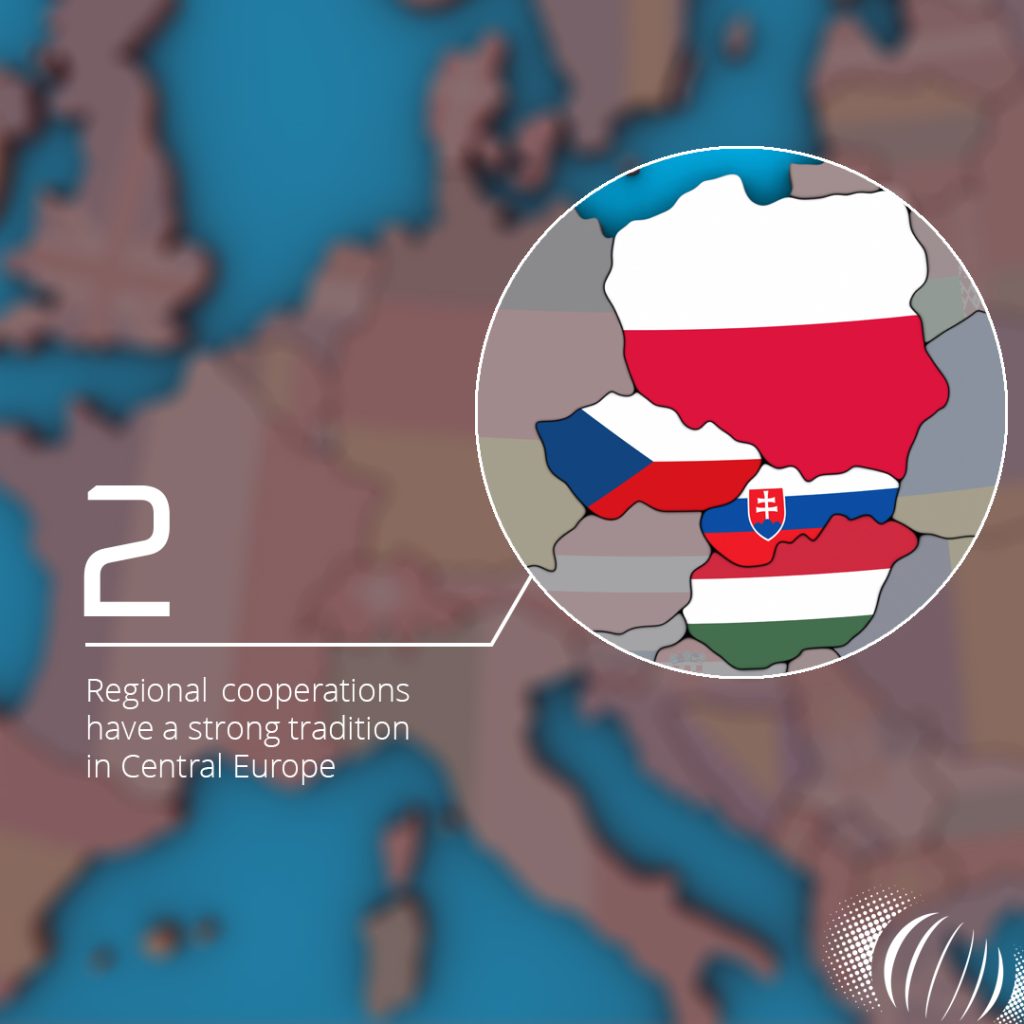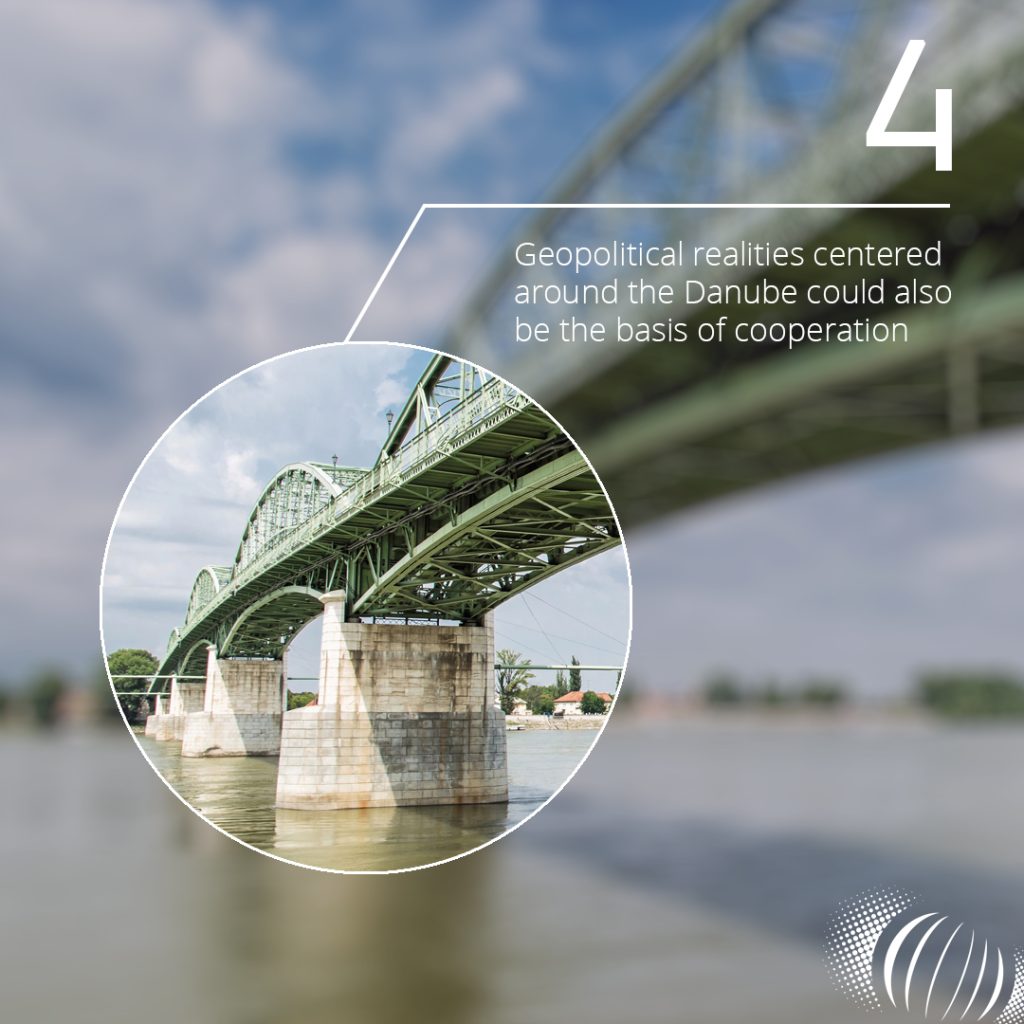1. In the new world order states are moving towards new cooperation formats
The world is going through a phase of significant and turbulent change that also affects the world order. New balances of power, as well as new demands, are shaping international politics. The evidence of these new dynamics is shown, among others, in the regrouping of forces based on national interests. As a result, new regional cooperation formats are emerging that are creating new economic or political power centers. Also, connectivity, as a guiding principle of international politics is based on the concept of being connected with as many countries as possible.
2. Regional cooperations have a strong tradition in Central Europe
Regional cooperation in Central Europe holds significant importance for various reasons. From a historical perspective, these cooperations have a long-standing tradition. The Visegrad Cooperation, for instance, one the most significant multidimensional regional cooperation within the EU was established in 1991 but it is linked historically to the idea of a similar cooperation in the 14th century. Today, not only the V4 but other regional formats are emerging. The leading principle of these cooperations is the need for states to find partners to achieve their national and regional interests.
3. Like-minded governments in Central Europe could accelerate good cooperation
The current political realities in the EU as well as in neighboring regions motivate Hungary to seek new cooperation possibilities that serve its national interests but also make the region and the EU itself more competitive. Connectivity as one of the main driving forces of the Hungarian foreign policy also supports the idea of developing closer relations with like-minded countries in the region that have similar approaches towards current political developments in the EU; that are facing the same challenges; have mutual understanding in areas such as peace and security of the region; and have deep historical and cultural ties with each other. Closer cooperation with Slovakia, Serbia, and Austria could make it possible to make the region a highly competitive, economically and politically stable area and the cooperation itself could bring new dimensions not only of economic growth and trade cooperation but could also be used to lobby for a better understanding of the region’s needs. Also, deeper cooperation of these countries could contribute to the EU’s economic competitiveness, the integration of the Western Balkans into the EU as well as to create a new power centre in the EU that is also able to coordinate their political interests.
4. Geopolitical realities centered around the Danube could also be the basis of cooperation
The Danube River holds significant geopolitical importance as one of Europe’s longest and most strategically vital waterways. Stretching across multiple countries in Central and Southeastern Europe, it serves as a crucial transport artery linking the region to the Black Sea. Today, the Danube remains a key conduit for commerce, energy transit, and geopolitical influence, shaping relationships and dynamics among the countries along its banks. Given the fact that the capitals of these four countries are located on the banks of the Danube and that all of these countries were involved in some way in different regional initiatives that were built on the importance of the river, the closer cooperation of these countries has a rationale today as well. The closer cooperation of Hungary, Slovakia, Austria, and Serbia might have positive impacts on such important issues as enhancing multimodal transport; modernizing inland and river ports; developing European military and security cooperation; reducing current economic disparities in the broader Danube region; increasing competitiveness at regional and wider EU level; supporting green energy transition and many others.
Geopolitical realities centered around the Danube could be the basis of mutual support for free trade stability and mutually beneficial international trade.
5. Hungary, Austria, Serbia, and Slovakia found themselves at the crux of the migration crisis, security challenges, and federalist attempts in the EU which make their closer cooperation natural from a political perspective as well
The political cooperation between Hungary, Slovakia, Serbia, and Austria is characterized currently by a mix of bilateral relations and multilateral initiatives. These countries, all located in Central and Southeastern Europe, share common interests in areas such as trade, energy, migration, and security. Bilaterally, they engage in diplomatic dialogue and cooperation on various issues of mutual concern, including border management, minority rights, and economic development. A possible multilateral framework between Hungary, Slovakia, Austria, and Serbia would provide a platform for broader regional cooperation and coordination on matters ranging from infrastructure projects, and migration crises to EU integration. These countries recognize the benefits of collaboration in promoting stability, prosperity, and connectivity in the heart of Europe. The formation of such is also rooted historically in the Mitteleuropa concept – today, these countries could represent the real centrality of the continent itself.





